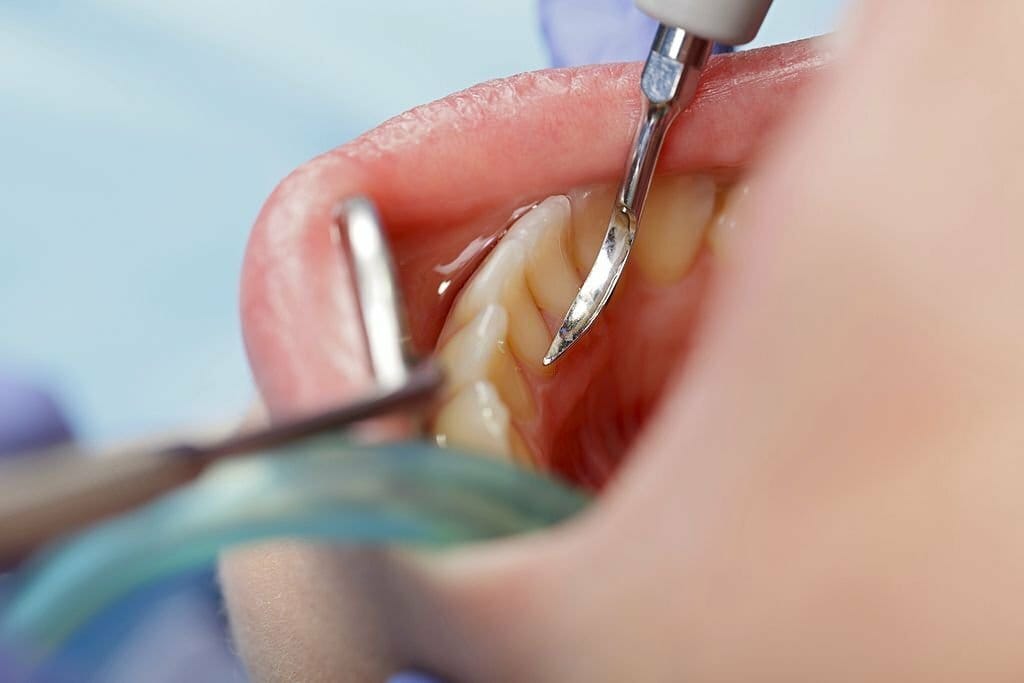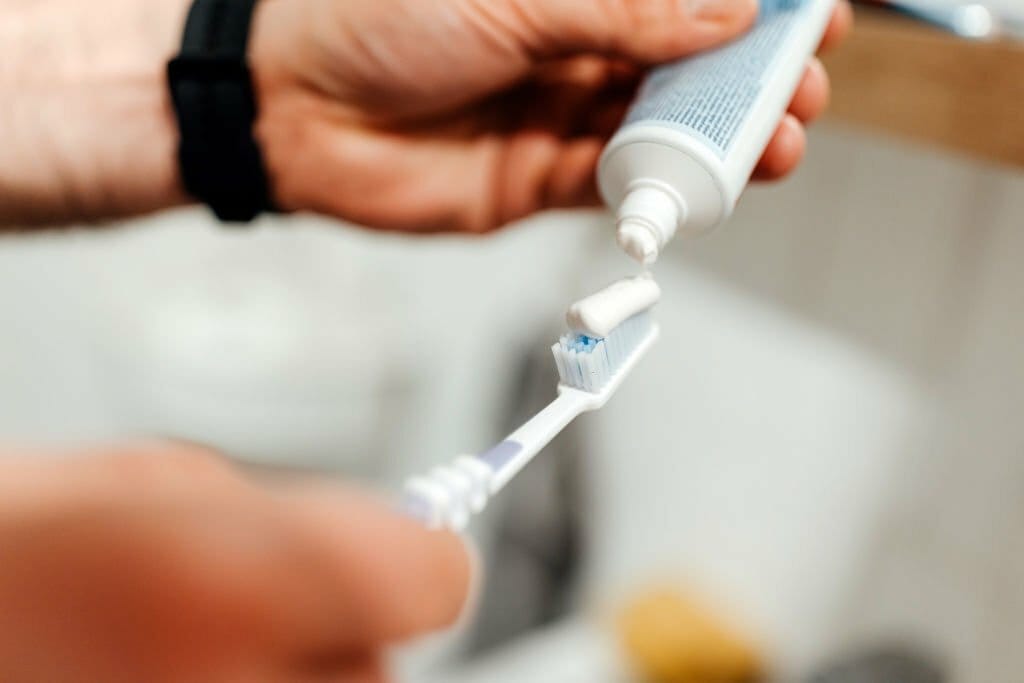This article is reviewed, corrected, and approved by: Dr. Joshua Collins M.D. | MRCP। FRCP
Have you ever heard of an oral disease called gingivitis? It's like when your gums, you know, those pink things around your teeth, get all red, swollen, and might even bleed sometimes! But don't worry, I've got your back to make those gums healthy again.
I'll talk about why it happens, what to do before and after it shows up, and even how to stop it from happening again. So, get ready for a fun trip to learn all about keeping your smile super happy!
Gingivitis: What is it?
Bacterial infection is the common cause of gum disease known as gingivitis. It is caused by plaque buildup on teeth. When not taken action, it can progress to more severe forms of periodontal disease.
Symptoms include swollen, red, and bleeding gums. Treating gingivitis is crucial as it not only affects oral health but also impacts overall well-being. To learn more, read: Is Gingivitis Curable? Yes, And Here is How
Causes of Gingivitis

There are several reasons are responsible for gingivitis. Here are those
Plaque Buildup
Plaque accumulation on teeth is the primary cause of gum inflammation. The tiny living things (bacteria) in dental plaque create harmful substances that can make your gums feel sore and uncomfortable.
Poor Oral Hygiene
When teeth are not clean and flossed adequately, plaque accumulates along the gum line and between teeth, causing gingivitis to develop.
Tobacco (Smoking) Use
Smoking or chewing tobacco weakens the immune system's response. That makes it harder for the body to fight off gum infections, increasing the risk of gingivitis.
Hormonal Changes
Hormonal fluctuations during menopause, puberty, pregnancy, and menstruation can make gums more sensitive and prone to gingivitis.
Some Other Medications
Some medications, like certain anticonvulsants and anti-angina drugs, can decrease saliva flow, affecting the mouth's ability to cleanse itself and leading to gingivitis.
Poor Nutrition
A diet deficient in crucial nutrients, especially vitamin C, may compromise the body's capacity to combat infections, such as gum disease.
Genetics
Some people have a higher susceptibility to developing gum disease. So, even if they take good care of their teeth, they can still get gingivitis.
Certain Health Conditions
Gum disease is more likely to develop if you have diabetes or a weakened immune system.
Stress
Chronic stress weakens the body's immune response, potentially making gums more vulnerable to infections like gingivitis.
Irregular Dental Visits
Skipping regular dental checkups and cleanings allows plaque and tartar to build up, increasing the risk of gingivitis development.
Gingivitis Before and After, What to Expect?
Here are some things to know and consider about gingivitis before and after
Gingivitis Before
The onset of gingivitis is caused by many reasons, like the buildup of plaque, a sticky bacterial film that forms on teeth. This plaque, abundant with bacteria, prompts irritation in the gums, consequently leading to inflammation and the preliminary phase of gum disease, known as gingivitis.
Symptoms and Complications
Visible signs of gingivitis include swollen, tender, and bleeding gums. If you don't take care of it, it can worsen and cause serious problems in your gums and teeth. This can make your gums go down, your bones weaken, and even lose your teeth.
Gingivitis After
Treating gingivitis involves professional dental cleaning. To remove plaque and tartar by using gingival irrigation. By taking good care of your teeth at home and learning how to brush and floss properly, you can help stop this problem from happening again.
Preventing Recurrence
Maintaining oral hygiene after treatment is vital. Regular dental checkups, diligent oral care, and lifestyle adjustments like quitting smoking play a crucial role in preventing gingivitis from returning.
How to Prevent Gingivitis?
Preventing gingivitis is all about keeping your mouth clean — you know, regular brushing, flossing, and heading to the dentist for a pro clean. Oh, and munching on a balanced diet and staying away from tobacco helps keep those gums in good shape, too.
Treatment of Gingivitis

The treatment for gingivitis involves a combination of professional dental care and improved oral hygiene at home. Let me break down the treatment process for you:
Professional Dental Cleaning
Your dentist will clean your teeth and remove hardened plaque to keep them healthy and prevent future problems. This process, called scaling and root planing, helps eliminate the bacteria causing gingivitis. In most cases, gingival irrigation is used to clean plaque.
Education and Guidance
Your dental specialist will show you how to brush and floss properly for good oral hygiene at home. They might also recommend specific oral care products tailored to your needs.
Regular Dental Checkups
Regular dental checkups are also needed to monitor and maintain oral health, particularly in preventing the recurrence of gingivitis. These visits also allow your dentist to address any concerns early on.
Antimicrobial Treatments
In some cases, your dentist might recommend antimicrobial mouth rinse or gels to help reduce the bacteria causing gingivitis.
Habit Changes
Making lifestyle adjustments like quitting smoking and adopting a healthier diet can significantly contribute to preventing gingivitis from recurring.
Follow-up Care
Regular oral hygiene is crucial to prevent gingivitis recurrence after initial treatment. This includes brushing twice a day, flossing once daily, and adhering to mouthwash instructions.
How To Treat Gingivitis At Home?

Here are some easy and common ways to treat gum disease
- Maintain Dental Hygiene: Brush teeth daily with natural toothpaste.
- Healthy Habits: Eat a balanced diet and limit sugary foods. Avoid smoking and manage stress.
- Natural Options (Optional): Rinse with salt water, apply aloe vera, or use tea tree oil products.
- Regular Dental Visits: Schedule checkups for professional cleanings and follow their advice.
Dentists may suggest antimicrobial products or deep cleaning procedures to control bacterial growth and remove tartar beneath the gumline.
Summary of Key Points
Before Gingivitis:
- Plaque buildup causes irritation in the gums, resulting in inflammation and the initial stage of gum disease.
- Symptoms include swollen, tender, and bleeding gums, which can worsen if left untreated, leading to serious oral health problems like gum recession, weakened bones, and tooth loss.
After Gingivitis:
- Professional dental cleaning, scaling, and root planing help remove plaque and tartar.
- Adequate home care, including proper brushing and flossing techniques, is essential to prevent recurrence.
- Regular dental checkups, lifestyle adjustments like quitting smoking, and a balanced diet play key roles in preventing gingivitis.
Treatment and Prevention of Gingivitis:
- Prevention: Regular brushing, flossing, dental visits, a balanced diet, and avoiding tobacco aid in preventing gingivitis.
- Professional Dental Care: Scaling and root planing remove plaque and tartar, while gingival irrigation cleans plaque. Education on proper oral hygiene and recommended oral care products are provided.
- Regular Checkups: Crucial for monitoring oral health and preventing gingivitis recurrence.
- Antimicrobial Treatments: Dentists might prescribe mouth rinses or gels to reduce bacteria causing gingivitis.
- Habit Changes: Lifestyle adjustments like quitting smoking and a healthy diet help prevent recurrence.
Treating Gingivitis At Home:
- Maintain Dental Hygiene: Regularly brush teeth with natural toothpaste.
- Healthy Habits: Adopt a balanced diet, limit sugary foods, avoid smoking, and manage stress.
- Natural Remedies (Optional): Rinse with saltwater, use aloe vera, or tea tree oil products.
- Regular Dental Visits: Schedule checkups for professional cleanings and follow the dentist's advice.
Bottom Line
Gingivitis isn't just about bleeding gums; it's a warning sign that oral health needs attention. Properly knowing root causes, recognizing symptoms, and starting timely treatment, individuals can save their gums and overall oral health.
Lastly, keeping your mouth clean helps prevent not just gingivitis but other dental problems, too. Remember, a healthy smile often starts with healthy gums.
F.A.Qs
Q: Is gingivitis reversible?
Ans: Yes, gingivitis is reversible with proper oral hygiene and professional dental care.
Q: How many stages of gingivitis?
Ans: There are 3 stages of gingivitis. Early signs include red, swollen gums (mild), advancing to bleeding during brushing (moderate), and later leading to receding gums and potential tooth loss (severe).
Q: Is gingivitis hereditary?
Ans: Genetics can play a role in susceptibility to gum disease. But also there are many factors like oral care habits, diet etc.
Q: Can someone die from gingivitis?
Ans: While rare, severe untreated gum disease can contribute to systemic health issues. However, direct death from gingivitis itself is extremely uncommon.
Q: With periodontal disease, how long can you keep your teeth?
Ans: Proper treatment and maintenance can help some retain their teeth for life, while others may need extraction if periodontal disease progresses.
Q: What is gingival flap surgery?
Ans: The gums are lifted away from the teeth during gingival flap surgery, also known as periodontal flap surgery.


